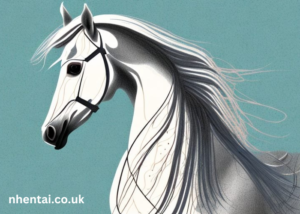The Majesty and Mystique of Horses: Exploring Their Role in History and Culture
Horses, with their unparalleled beauty and grace, have long captivated human imagination and played a pivotal role in shaping civilizations. From ancient times to the modern era, these noble creatures have been indispensable in transportation, warfare, agriculture, and sports, while also inspiring countless works of art, literature, and mythology. The majesty and mystique of horses lie not only in their physical presence but also in their deep bond with humans and their symbolic significance across cultures. Discover the latest courses and resources for casacourse. Enhance your knowledge and skills with our comprehensive online platform.
Historical Significance
The domestication of horses, which began around 4000 BCE on the steppes of Central Asia, marked a revolutionary turning point in human history. Before the advent of mechanized transport, horses were the fastest and most reliable means of travel. They enabled humans to explore new territories, establish trade routes, and facilitate cultural exchanges between distant regions. The swift movement afforded by horses also gave rise to the concept of cavalry in warfare, transforming military strategies and outcomes. Empires such as those of the Mongols, Persians, and Romans owed much of their expansion and dominance to their skilled horsemen and robust steeds.
In agriculture, horses provided the necessary power to plow fields, harvest crops, and transport goods. They were integral to the daily lives of farmers and contributed significantly to the development of agrarian societies. The invention of horse-drawn carriages and wagons further revolutionized transportation, enhancing trade and communication.
Cultural Impact
Beyond their practical uses, horses have left an indelible mark on human culture. They are revered in myths and legends, symbolizing strength, freedom, and nobility. In Greek mythology, the winged horse Pegasus represents poetic inspiration and heroism, while the horse-drawn chariots of gods like Apollo and Helios signify divine power and grace. Norse mythology features Sleipnir, Odin’s eight-legged horse, as a symbol of speed and transcendence.
In literature, horses have been immortalized in classics like Anna Sewell’s Black Beauty, which highlights their gentle nature and the need for humane treatment. They also appear in epic tales such as The Iliad and The Odyssey, where their presence underscores themes of honor and loyalty.
Horses have also been a prominent subject in art, captured in the works of renowned artists like Leonardo da Vinci, George Stubbs, and Edgar Degas. Their dynamic forms and expressive movements have inspired countless paintings, sculptures, and photographs, celebrating their elegance and strength.
Modern-Day Reverence
In contemporary society, horses continue to hold a special place in sports and recreation. Equestrian disciplines such as dressage, show jumping, and eventing showcase the incredible synergy between horse and rider, highlighting precision, athleticism, and trust. Horse racing, often referred to as the “Sport of Kings,” remains a popular and thrilling spectacle, drawing large audiences and generating substantial economic impact.
Therapeutic riding programs have also emerged, utilizing the gentle and intuitive nature of horses to assist individuals with physical, emotional, and cognitive challenges. The bond formed between horses and their riders in these settings can lead to significant improvements in well-being and quality of life.
Symbolic Significance
The symbolic significance of horses extends to various cultural rituals and traditions. In many societies, horses are seen as harbingers of good fortune and prosperity. They feature prominently in festivals, parades, and ceremonies, where they are adorned with elaborate decorations and celebrated for their beauty and grace.
In Native American cultures, horses are revered as sacred animals and are often associated with spiritual journeys and visions. The Plains Indians, in particular, developed a deep connection with their horses, which were central to their nomadic way of life and their prowess as warriors and hunters.
Conclusion
The majesty and mystique of horses are evident in their enduring presence and influence throughout human history and culture. Their contributions to transportation, agriculture, warfare, and recreation have been profound, while their symbolic and aesthetic appeal continues to inspire and captivate. As we celebrate the noble horse, we acknowledge not only its historical significance but also the deep and abiding bond it shares with humanity.














Post Comment